I have to be honest: this month was a real struggle. The first few reads of February left me feeling so disappointed, I was heading towards a reading slump. But then, I found a book that completely turned things around and became my favorite of the year so far. I also ended up reading exclusively books written by women, so I'm actually really happy about. Here are all my thoughts!
Thank you for reading,
Ella.
The Empusium written by Olga Tokarczuk.
This novel has been described as a horror/feminist retelling of The Magic Mountain by Thomas Mann. Even on the cover it says “a health resort horror story.” Well, it is a story, yes… but horror? Not really. The premise was so intriguing to me: a young student with tuberculosis arrives at a secluded sanatorium to recover. There, he meets other sickly gentlemen who spend their days debating various topics… mostly women. Obviously soon enough strange things start to happen. This should have been the setup for a gothic horror story, full of murders and ghosts. And while there are glimpses of something sinister, what I found most was boredom and relentless misogyny. There is, of course, a twist at the end that almost redeems the book. Also, in the afterword, Tokarczuk explains that for the misogynistic discussions throughout the novel she paraphrased real quotes from male writers like Shakespeare and Dickens. This is an interesting literary experiment, but it felt drawn out. It all felt like a farce to me, I could tell that it was written by a woman. Personally, I only need to hear one sexist remark from a character to hate him instantly. Instead, we’re subjected to endless, meandering conversations, as if the book is forcing us to dislike these men, only to then spend pages in their company while they bore us to death. The horror element is nearly nonexistent for most of the book. There’s a glimpse of it in the final pages, but not enough to justify the slog that came before. As for Tokarczuk’s writing (praised by many) I didn’t find it particularly extraordinary. Maybe it was the translation. Maybe it was just me. This was my first book by her, as the premise intrigued me the most. Despite my disappointment, I’ll still give Drive Your Plow Over the Bones of the Dead a try.
Love written by Hanne Ørstavik.
This was a cold read in every sense of the word. The cold of the winter night that our two protagonists are living in rushed into my bones, so the atmosphere was one of the best aspects of the book. Even though I didn’t love this (I gave it two stars), I still found it to be a thought provoking exploration of loneliness within one’s own household, of abandonment, the search for something more, and most of all, of the absence of love between a mother and her son. Vibeke and Jon have just moved to a quiet and remote town in Norway, and the novel follows them over the course of a single winter evening, alternating between their perspectives. I found Jon to be the more interesting character, but I hated the way their points of view overlapped: one moment you’re with Jon and the next you’re suddenly reading about Vibeke. The writing style also wasn’t for me. I tend to avoid books written in the present tense, they always feel distant to me and I can’t fully immerse in the story. Love left me with a lingering sense of sadness, and I found myself reflecting on the relationship between these two characters after finishing it. So, I would still recommend it to readers who appreciate introspective, atmospheric books set within a single day, especially to those who enjoy quiet and meditative storytelling.
Woman Running in the Mountains written by Yüko Tsushima.
Another quiet and introspective novel. I think this one will resonate more deeply with readers who have experienced some of the struggles the protagonist faces. Takiko is a 20 year old living in 1970s Japan, pregnant with an illegitimate child, and trapped in a toxic household. The relationship with her father especially, is very violent. But she isn’t submissive, she fights back, insults him, and try to find a way to move out. I really enjoyed the first part of the book, which focuses on Takiko’s childbirth experience, her time in the hospital, and her efforts to find work and be even more independent than she already is. The second half dragged, and by the end, I found myself less invested in how her story would continue. This isn’t a poorly written book, far from it, but at times the narrative felt dry. It’s also another case of “the synopsis promised one thing, but I didn’t find it.”: the supposed “deep connection” with nature that Takiko should have experienced just wasn’t there. As I said, I think this book will be more impactful for readers who can personally relate to Takiko’s experiences. Unfortunately, that wasn’t the case for me.
O Caledonia written by Elspeth Barker.
O Caledonia is an eerie and gothic tale. The novel opens with an intriguing and mysterious scene: Janet lies dead at the foot of her castle stairs, murdered by someone and remembered by no one except her beloved jackdaw. From there the story moves back in time and we learn about Janet’s short and troubled life, about her family and the people she meets along the way, all of whom, in some way, lead to her tragic death. When I started this book, I was ready to uncover the identity of Janet’s killer. But as the story progressed I found myself more interested in Janet’s life than in the mystery of her death. I wouldn’t classify O Caledonia as a murder mystery. The killer is revealed at the end, yes, but the novel suggests that anyone Janet meets could have played that role. She is a deeply misunderstood sixteen year old, isolated and friendless, the kind of girl others usually would call “a weirdo.” She finds peace in animals and books, and I obviously loved reading about her. The real strength of Elspeth Barker’s writing lies in the atmosphere of loneliness and marginalization that the protagonist faces. I found that at times the pacing was a bit slow, and I wished the focus had remained more consistently on Janet, but that’s just a personal preference. I liked this book, but I can’t say I absolutely loved it. I highly recommend reading the introduction by the brilliant Maggie O’Farrell. She articulates her thoughts on the novel beautifully, and even though O Caledonia wasn’t a personal favorite for me, her words allowed me to see it in a new light.
The Book of Form and Emptiness written by Ruth Ozeki.
A book narrated by a book. Written in accessible and easy prose, The Book of Form and Emptiness follows Benny and Annabelle, a mother and son who are trying to cope with the recent loss of their father and husband. Annabelle struggles with depression and hoarding, while Benny begins hearing voices. At first, it’s just his father’s voice, but soon, everything around him, every object, starts speaking to him. Seeking comfort and silence, Benny finds refuge in the library, where he encounters quirky and eccentric characters, and most importantly, where he meets the book that narrates his story. The beginning was good and I enjoyed the introduction to the protagonists and their backstories. There are numerous metaphors throughout, and the book is deeply rooted in Buddhist philosophy (the author is a Zen Buddhist priest, and I could tell). At its heart, it’s also a classic coming of age story, and at times, it almost felt like I was reading a young adult novel. While this isn't a criticism — I would’ve loved this ten years ago — I found that as an adult I struggled to fully connect with the teenage protagonist. Personally, I would have preferred the story to focus solely on Annabelle: a narrative still about grief and mental illness, but also about the complexities of being a mother to a child who is so difficult to understand. Also, the ending felt rushed. The mental health struggles of both characters seem to resolve way too quickly, which didn’t feel realistic to me. I believe the story could have been shorter but with more time spent wrapping up the narrative in a more satisfying way. Despite its flaws, I enjoyed reading this. Some beautiful passages stuck with me, and it’s one of those books I would recommend to anyone as it is so accessible.
The Pumpkin Eater written by Penelope Mortimer.
This book was a light in the darkness for me. I was struggling, trying to find something that would truly move me, and after some mediocre reads, I finally found my way out of the beginning of a reading slump. Thank God for Penelope Mortimer. The narrator of this novel is never named, she’s simply referred to as “Mrs. Armitage,” because that is the surname of her fourth husband. With this in mind, you can immediately sense what the author is trying to communicate. Marriage, infidelity, motherhood, oppression, and mental illness are just a few of the themes explored in this story. We live inside the narrator’s head as she struggle with her life, surrounded by an army of children, an unfaithful and indifferent husband, and memories from her childhood. In some ways this reminded me of The Yellow Wallpaper by Charlotte Perkins Gilman (you can read my review here). Both stories feature women so mentally exhausted that they are essentially forced into isolation, seeing a therapist who provides no real help, only to be dismissed as “crazy.” I have to say, some may find this boring, as not much happens in a traditional sense, and I get it. But it’s one of those books that reflects on the experience of being a woman trapped in a complicated situation where leaving is not always the simplest answer. The condition of women within marriage and abortion are also central themes, and Penelope Mortimer's writing is so sharp and clever that I felt immediately drawn in. For a moment, halfway through the story, she suddenly transports us back to the past. The narrator recalls her relationship with her parents when she was fourteen and the weird connection she found with a girl friend. In this segment of the novel, we get a glimpse of her past and we can understand her adult mind a little bit more. There are also many metaphors in this book, as well as a peculiar sense of claustrophobia. If you’re never tired of reading about how hard and complicated it is to be a woman, I highly recommend reading this. I loved everything about it.




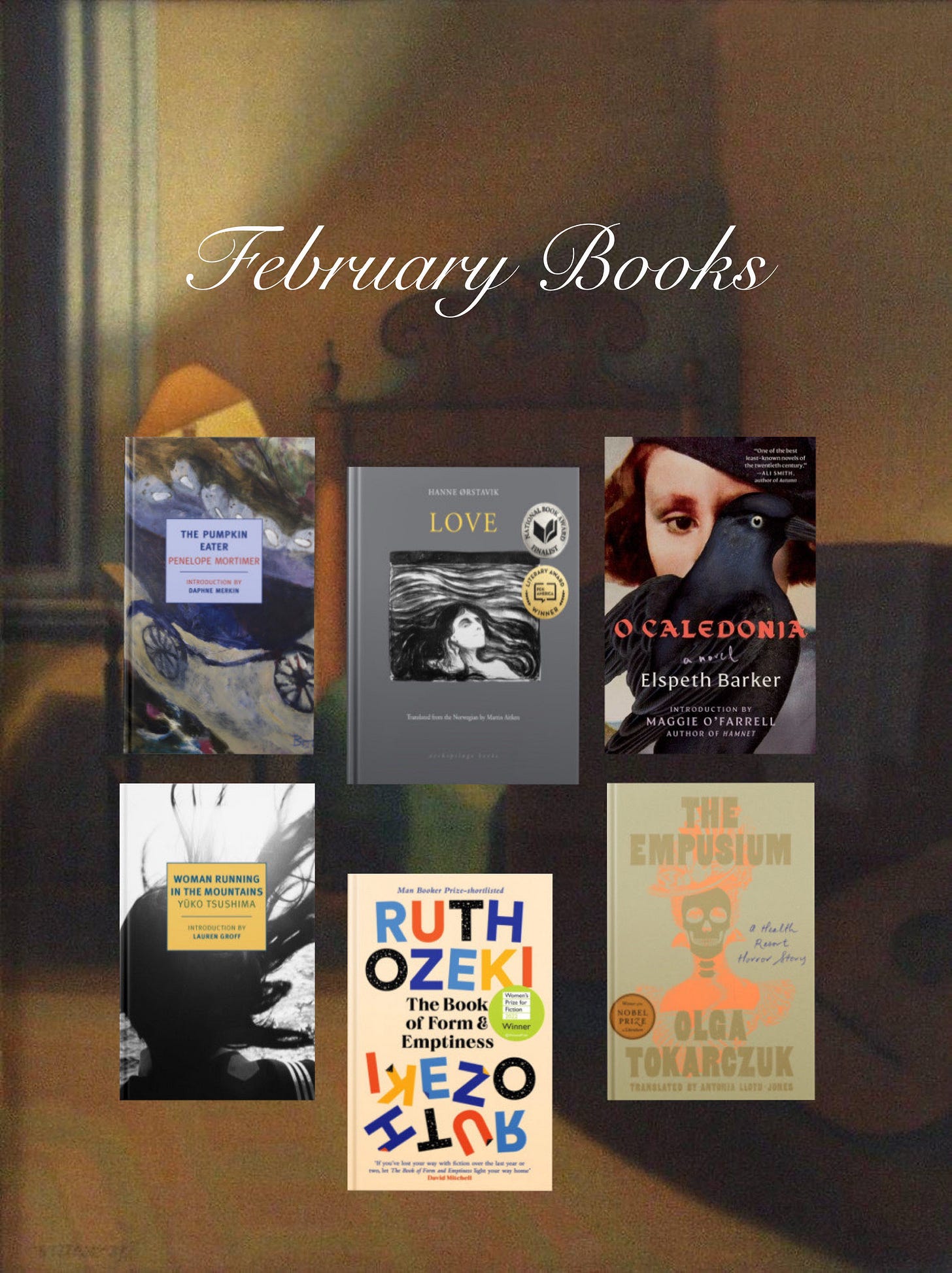
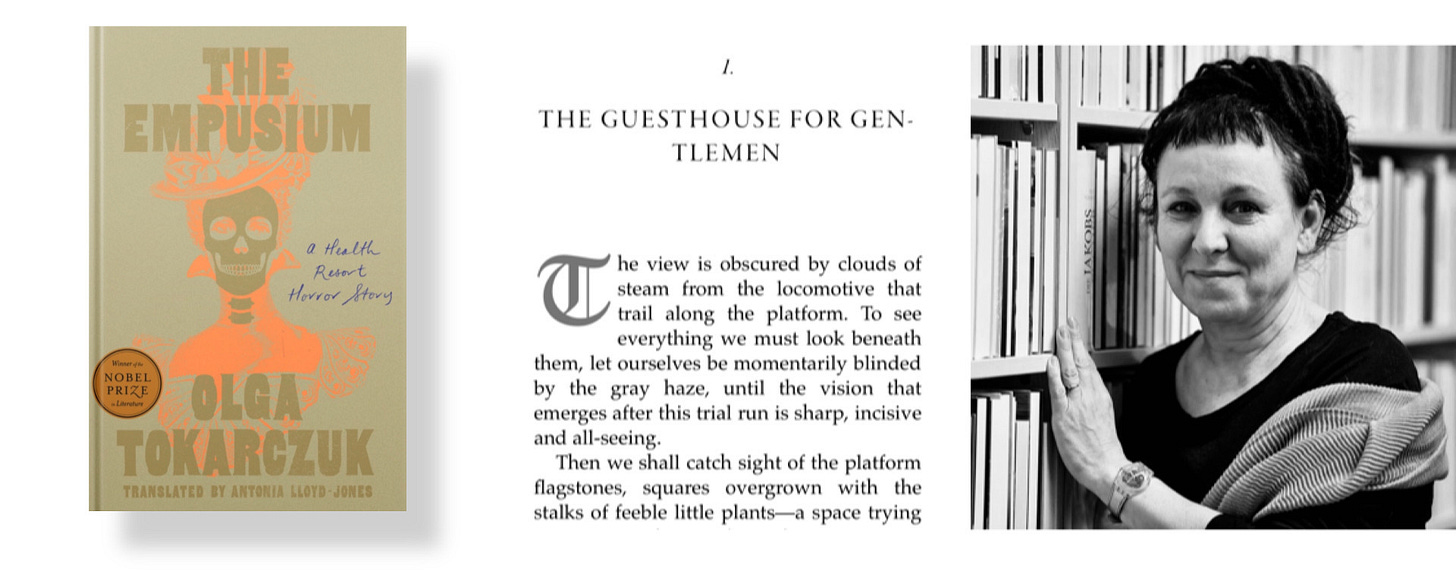
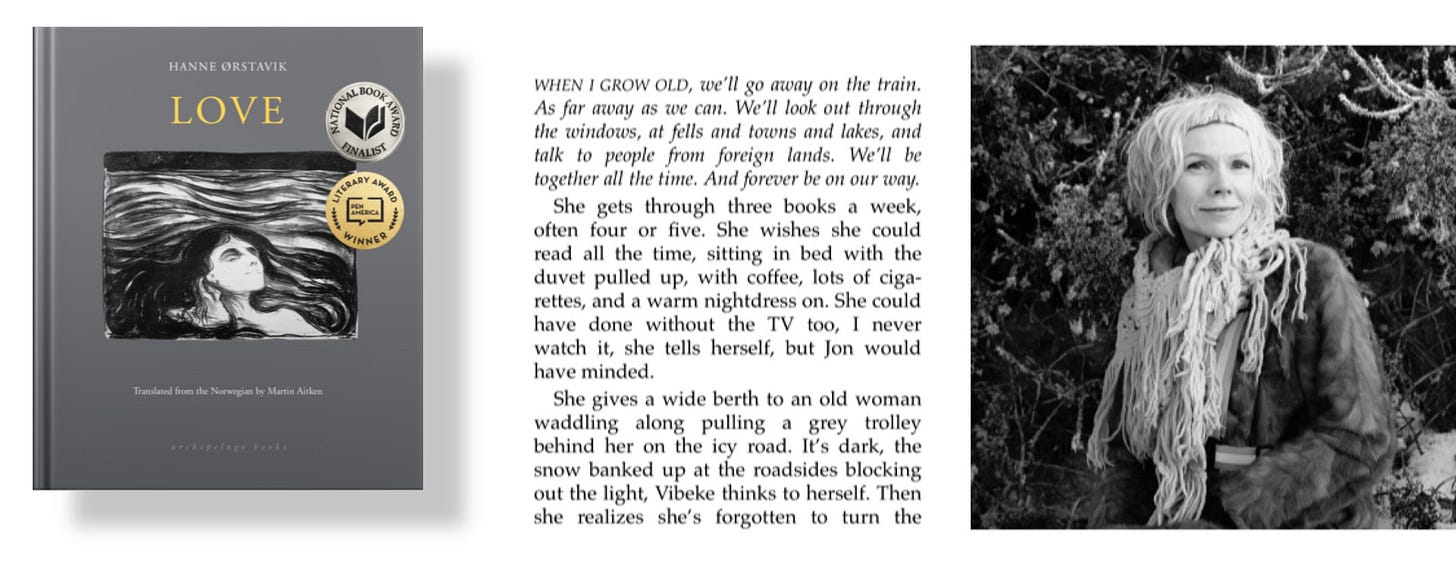
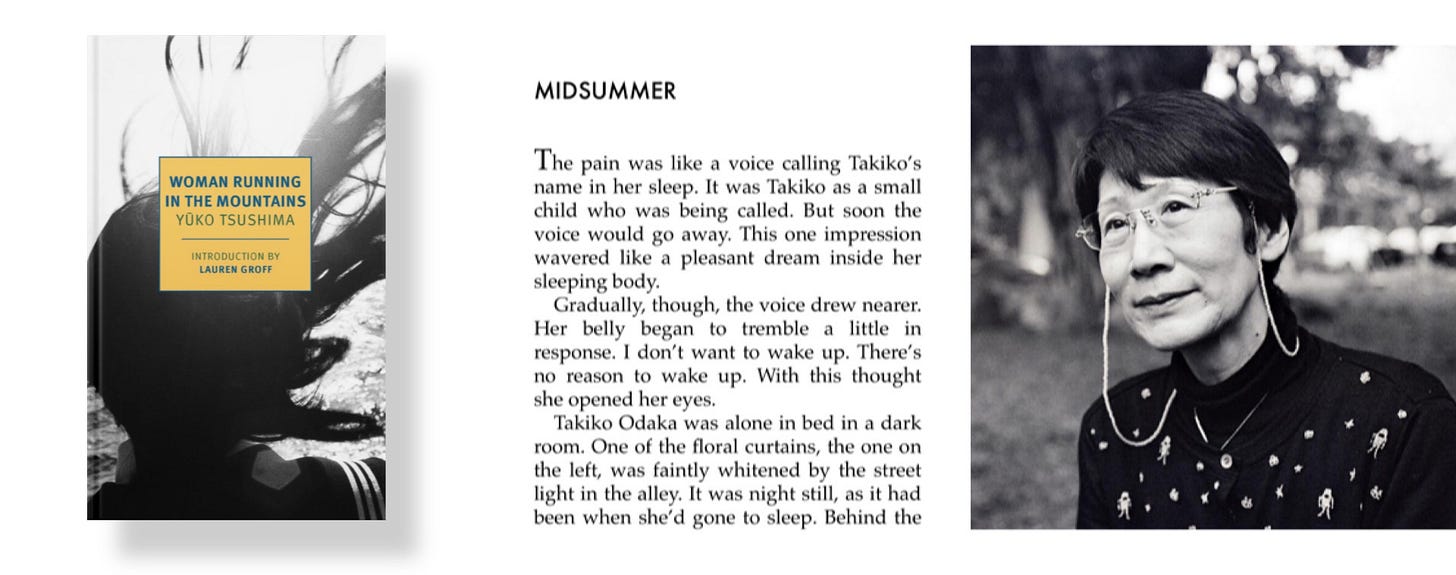
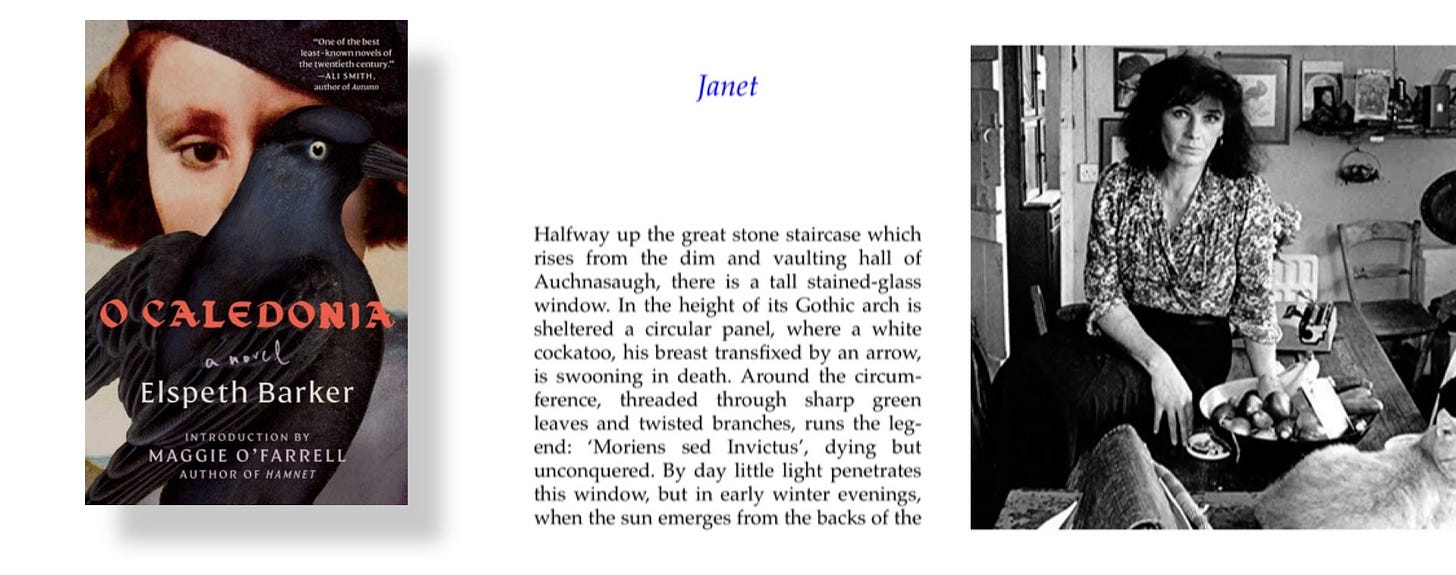
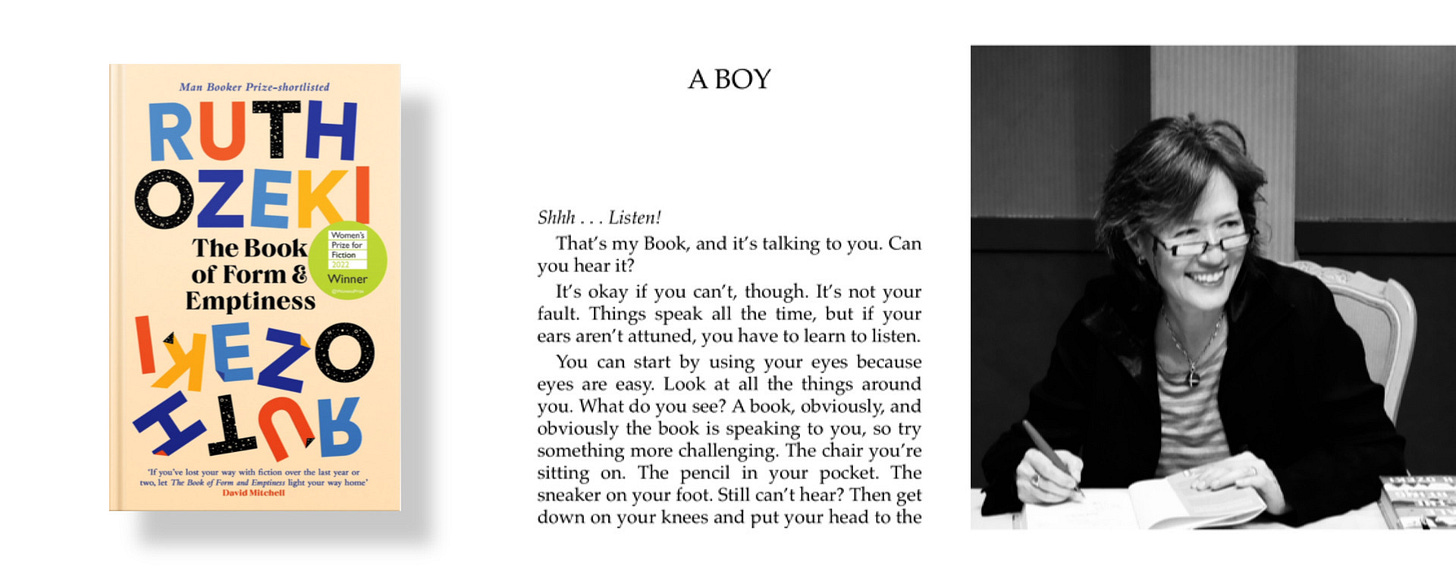
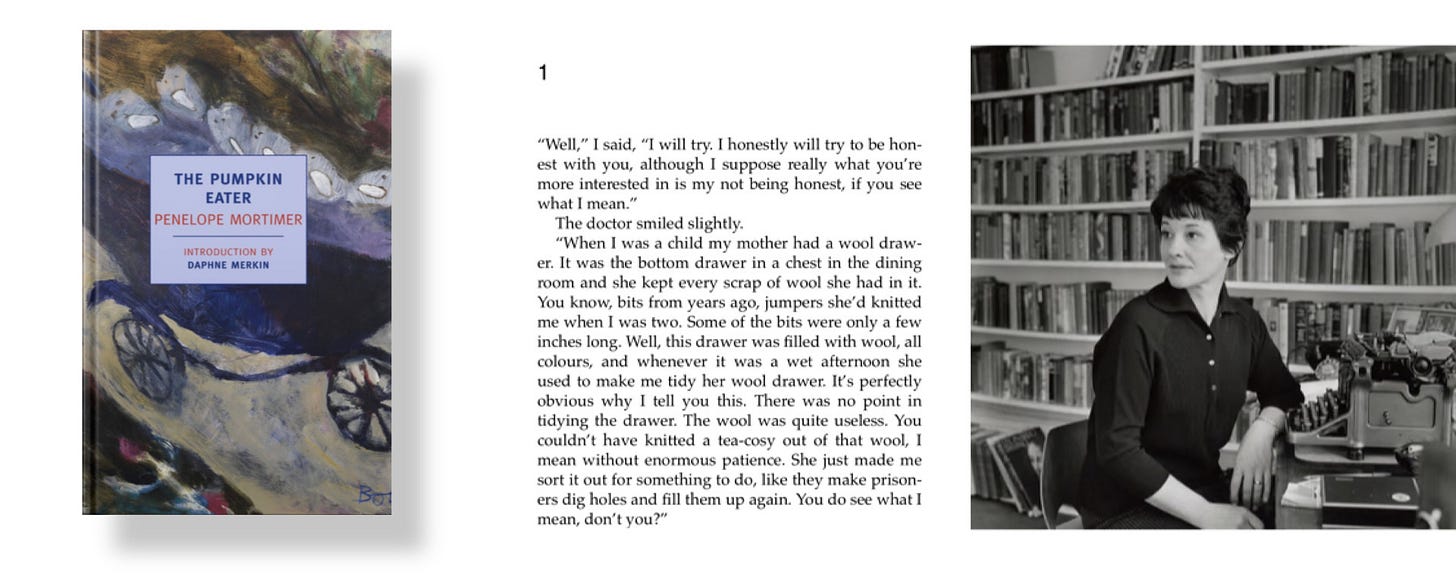
I almost picked up The Empusium the other day because of the same reasons – a health resort horror story that's feminist – but something stopped me in the bookstore. When I came home and looked up the book on Storygraph I saw loads of reviews commenting on the misogyny you point out as well... Really disappointed since I liked Drive Your Plow Over the Bones of the Dead!